Denmark holds the Presidency of the Council until the end of 2025. This text will be updated regularly as the hearings take place.
Agriculture and Rural Development Committee
On 15 July, Jacob Jensen, Minister for Food, Agriculture and Fisheries, said that the Presidency will focus on easing the administrative burden for farmers while continuing to promote the green transition and animal welfare. Concluding the current negotiations on the common agricultural policy (CAP) simplification package and starting discussions on the post-2027 CAP will also be priorities.
Several MEPs called for fair conditions between farmers inside and outside the EU in connection with the Mercosur Agreement and animal welfare. They asked how the presidency will help guarantee the EU’s protein and fertiliser self-sufficiency and support organic farmers. Others raised the issue of ensuring that the green transition does not compromise the agriculture sector’s sustainability.
Regional Development Committee
On 15 July, Danish Minister for European Affairs Marie Bjerre argued that cohesion policy should continue to play a crucial role in the EU budget, as the Presidency works on proposals for the next multiannual financial framework (MFF). She said that funding should also support competitiveness and be flexible in the face of unexpected events. Ms Bjerre highlighted the need to strengthen rule of law conditionality in the allocation of EU funds.
MEPs agreed on the need to modernise cohesion policy and make it more flexible, but asked for the Presidency’s support in defending the policy’s core purpose – reducing inequalities between regions – and the role of regions and local authorities.
Legal Affairs Committee
On 15 July, Justice Minister Peter Hummelgaard stressed the need to boost EU competitiveness but also to protect common values while advancing the green and digital transition. He committed to make progress on draft bills on the protection of adults and insolvency, while promoting rules on parenthood.
Morten Bødskov, Minister of Industry, Business and Financial Affairs, will strive to simplify existing rules for the benefit of EU businesses in the upcoming negotiations on sustainability reporting and due diligence obligations. Mr Bødskov also intends to advance the patent package and the “28th regime” initiative (a single set of EU rules to support innovation).
MEPs inquired about plans to strengthen the rule of law, fight illegal migration and improve licensing, considering the planned withdrawal of the proposal on standard essential patents. They also asked for work to move ahead on the special tribunal for the crime of aggression, for measures to ensure that simplification does not lead to deregulation, and for efforts to balance rights and copyright in the context of new technologies.
Foreign Affairs Committee
On 15 July, European Affairs Minister Marie Bjerre said that the Presidency wants to advance EU accession negotiations with all candidate countries. She also added that the EU must act more independently to ensure its security. The dialogue with Türkiye will continue, but its accession negotiations will remain on hold.
MEPs called for more support for some candidate countries on their EU path. They also enquired on possible new strategic partners for the EU, given recent developments in relations with the US, and called for the deepening of relations with Latin America. They also asked what steps the Presidency intends to take to help the humanitarian situation in Gaza.
Environment, Climate Change and Food Safety Committee
On 15 July, Jacob Jensen, Minister for Food, Agriculture and Fisheries, highlighted the need to simplify EU legislation for farmers and food producers, and to promote innovation through tools such as new genomic techniques, on which the Presidency aims to strike a deal with Parliament. He stressed the importance of making the EU’s agri-food sector more competitive while maintaining high standards of sustainability and food safety. Other priorities include an EU strategy for plant-based proteins, animal welfare, and action to tackle antimicrobial resistance.
MEPs raised questions about the future of the CAP, demanding greater fairness, increased support for smaller farms, and clear targets for pesticide reduction. MEPs also enquired about trade agreements, such as with Mercosur, and a possible ban on PFAS (per- and polyfluoroalkyl substances).
Lars Aagaard, Minister for Climate, Energy and Utilities, stressed the importance of reaching an agreement on the EU 2040 climate target, to offer clear guidance for climate action, investment, and industrial competitiveness. He underlined the need for an agreement before the COP30 in Brazil on 10–21 November 2025, to show EU leadership and unity.
Some MEPs raised concerns about energy affordability and the social impact of the new emissions trading system, while others stressed excessive flexibility would undermine the 2040 target.
Civil liberties, Justice and Home Affairs Committee
On 15 July, Justice Minister Peter Hummelgaard said the Presidency would prioritise work on the fight against serious cross-border and organised crime, action to improve victims’ rights, and police cooperation to counter migrant smuggling. The Presidency will also advance work on the directive and regulation to combat child sexual abuse.
Torsten Schack Pedersen, Minister for Resilience and Preparedness, called for implementation of the “Preparedness Union” strategy to strengthen EU security, resilience and preparedness. The Presidency will advance work on the reformed EU civil protection mechanism, the stockpiling strategy and measures to protect critical infrastructure.
MEPs asked the Presidency about progress on the directives on combating corruption and victims’ rights. According to the Justice Minister, work on both will continue promptly as a priority. MEPs and the Ministers also discussed law enforcement access to data, and measures against terrorism and online radicalisation.
Kaare Dybvad, Minister for Immigration and Integration, emphasised the need to implement the Asylum and Migration Pact in full. The Presidency will work on proposals on safe third countries, safe countries of origin and a common approach to returns. He also mentioned the possibility of developing external partnerships and possible return hubs in third countries, stressing the need to uphold international law and human rights. Other priorities are action to combat migrant smuggling and the EU talent pool.
On Migration and Asylum Pact implementation, MEPs asked about the solidarity platform, protection of human dignity, and cooperation with third countries. The minister replied that priority should be given to people in need of refugee status. Economic migrants must use legal channels, and those with no right to stay need to be returned to their home countries.
Marie Bjerre, Minister for European Affairs, said the Presidency aimed to strengthen the link between respect for EU values and access to EU funds, enhance the Council’s rule of law dialogues, and support tools such as the Commission’s rule of law report. It will also work to reinforce the conditionality mechanism in the next long-term budget, by increasing funding for it and ensuring more automatic application.
Some MEPs raised concerns about the situation in Hungary, and called for a stronger conditionality mechanism and better protection of media freedom and civil society. Others called for clarity on the definition of rule of law, and raised the issues of spyware use against journalists and the situation in Gaza.
Employment and Social Affairs Committee
On 15 July, Employment Minister Ane Halsboe-Jørgensen stressed that the Presidency would focus on investing in skills, fair labour mobility, strengthening social dialogue, and occupational health. She aims to advance the revision of the Carcinogens and Mutagens Directive (CMRD) and the European Globalisation Adjustment Fund for Displaced Workers. Minister for Social Affairs and Housing Sophie Hæstorp Andersen highlighted the need to improve independent living for persons with disabilities and to improve access to sustainable and affordable housing.
MEPs highlighted the lack of legislative proposals in social areas and voiced concern about the future of the European Social Fund+. They stressed the need to strengthen the European Labour Authority, and addressed the working conditions of non-EU nationals, the lack of skilled workers, and the migration of qualified workers. Others asked for action on employment rights for persons with disabilities, the coordination of social security systems, and the European Child Guarantee.
Internal Market and Consumer Protection Committee
On 15 July, Caroline Stage Olsen, Digital Affairs Minister, emphasised the need for action to boost investment and cut red tape. Special attention will be given to protecting minors online through firm Digital Services Act enforcement, new age verification rules and action to tackle addictive design. She supported postponing elements of the AI Act to give business, especially smaller companies, more time to comply.
Morten Bødskov, Minister for Industry, Business and Financial Affairs, stressed the Presidency’s intention to tackle customs challenges, unfair competition, slow growth and job loss. The minister also expressed strong support for the green transition and the need to advance work on simplification packages and regulatory burden reduction targets.
MEPs asked about the Presidency’s plans to work on e-commerce, the posting of workers, attracting talent and the “28th regime” (a single set of EU rules to support innovation). They also enquired about digital policy loopholes and the Digital Fairness Act, and the need to advance negotiations on the late payments regulation and the European defence industrial strategy.
Development Committee
On 15 July, Foreign Affairs Minister Lars Løkke Rasmussen called for a stronger Team Europe approach, given the widening gap between humanitarian needs and the resources available. Presidency priorities include the Global Gateway, the Samoa Agreement, the EU-African Union (AU) Summit, human rights and the sustainable development goals. The Presidency will champion external action in negotiations on the next long-term EU budget.
MEPs stressed the importance of development aid and the need to make sure foreign investment upholds human rights, while also voicing concern over irregular migration. They called for a broader EU presence at the next EU-AU Summit, and asked about the Presidency’s plan for the UN High-Level Political Forum on Sustainable Development.
Public Health Committee
On 16 July, Sophie Løhde, Danish Minister for Interior and Health, highlighted the need to strengthen EU preparedness through efficient medical countermeasures, ensure better access to medicines, and address antimicrobial resistance. She shared the Presidency’s commitment to finalising the Council’s position on the critical medicines act, hoping an agreement with Parliament could be reached on the pharmaceutical package by the end of the year.
MEPs quizzed the minister on medicine affordability, rare diseases, and healthcare workforce shortages. Some called for a greater focus on women’s health, action against PFAS contamination, and improved EU coordination of health and military crisis preparedness.
Constitutional Affairs Committee
On 16 July, European Affairs Minister Marie Bjerre said the Presidency priorities were to advance a merit-based EU accession process and uphold the rule of law. She also highlighted the need to reinforce democratic resilience, for instance through the Commission’s Democracy Shield and improved transparency of foreign interests. The Presidency is also committed to strengthening interinstitutional cooperation and pursuing institutional reforms within the existing treaty framework.
MEPs raised questions on the link between internal EU reforms and future accessions, the use of qualified majority voting to overcome institutional deadlocks, the right of inquiry, and electoral reform. Bjerre replied that the lack of consensus among member states on possible treaty changes made that a less feasible path.
Security and Defence Committee
On 16 July, Defence Minister Troels Lund Poulsen said that one of the priorities was to continue to support Ukraine politically, militarily and financially, and work on integrating the Ukrainian defence industry into the EU one. This includes paving the way for Ukrainian companies to set up facilities in the rest of Europe. He also mentioned the need for Europe to be able to defend itself by 2030 by increasing its defence readiness and production, and freeing up defence financing.
MEPs questioned the minister on a range of topics, including the use of frozen Russian state assets to support Ukraine’s reconstruction, a dedicated European defence fund, removing hurdles to support the Ukrainian defence industry, and the pros and cons of non-EU country access to EU defence funds.
Fisheries Committee
On 16 July, Jacob Jensen, Minister for Food, Agriculture and Fisheries, said the Presidency would prioritise the green transition, simplification, including for the Ocean Pact, and better regulation of fisheries. They will also focus on fishing opportunities in the Mediterranean and Baltic Sea for 2026 to allow fishers to plan early.
MEPs highlighted fleet renewal, the Baltic Sea’s herring situation and the MFF’s role in achieving sustainability, simplification, and climate goals. They expressed concern over the 24-metre fleet renewal restriction and called for specific funding mechanisms for the Ocean Pact. Finally, they welcomed the focus on 2026 fishing quotas and sustainability objectives.
Transport and Tourism Committee
Boosting competitiveness, easing the administrative burden, ensuring a green transition in transport and tourism, but also military mobility, are the main drivers of Danish presidency, said Thomas Danielsen, Minister of Transport on 16 July. He hoped to start talks with MEPs on passenger rights and rules on counting CO2 emissions, as well as to finish negotiations on railway capacity infrastructure. Morten Bødskov, Minister of Business, Industry and Financial Services, added the Presidency perspective on shipping transport and upcoming EU ports and maritime industry strategies.
The majority of transport committee MEPs welcomed the Presidency priorities, the ambition to reach a Council position on weights and dimensions rules, while some questioned the focus on the green transition. On passenger rights, MEPs were frustrated with the Council decision to force into a tight deadline to reach a deal on future rules, and asked the minister not to forget the multimodal part of the package.
Women’s Rights and Gender Equality Committee
On 16 July, Minister for Environment and Gender Equality, Magnus Heunicke, outlined priorities including combating gender-based violence, promoting equal opportunities by involving men and boys, and strengthening LGBTQI equality amid rising hate and harassment. He announced that a Council meeting on 17 October would focus on equality and non-discrimination.
MEPs raised concerns about the absence of an EU-wide consent-based definition of rape, the lack of progress on the revision of the Victims’ Rights Directive, the under-representation of women in government, and the stalled horizontal anti-discrimination directive. In response, Heunicke confirmed that there would be a discussion on a consent-based rape definition, and that finalising the Victims’ Rights Directive negotiations was a priority.
International Trade Committee
On 16 July, Minister for Foreign Affairs Lars Løkke Rasmussen named agreements on the revised general scheme of preferences (GSP) and the foreign investment screening review as being among his priorities. The phasing-out of Russian gas imports and ratification of the trade agreement with Mercosur are also high on the agenda. The Presidency will also work to negotiate a new trade relationship with the US, while being prepared for other scenarios.
MEPs welcomed the priorities, particularly on concluding the Mercosur Agreement, phasing out Russian gas imports and concluding the revision of the GSP. Some MEPs also questioned the Presidency on how EU-Israel trade relations should evolve given the humanitarian situation in the Middle East.
Culture and Education Committee
On 16 July, Mattias Tesfaye, Minister for Education and Youth, said that Presidency wanted to make vocational education and training more attractive, ensure learning mobility, and focus on how the digitalisation affects learning outcomes. The Presidency will also prioritise negotiations on the next generation of Erasmus+ and on the European education area.
Many MEPs expressed their concerns about the future of the Erasmus+ programme and enquired about the protection of children online, recognition of competences, and the safety of young students in the workplace.
Jakob Engel-Schmidt, Minister for Culture, Media and Sports Policy, highlighted the need to prohibit the use of images, voice and other personal features in deepfakes or lifelike imitations. The EU Copyright Regulation should be updated to address the challenges posed by artificial intelligence to the cultural and creative sectors, either by guaranteeing fair remuneration for rights holders or by achieving the best possible conditions for licensing agreements. In sport, the Presidency promises to do more to uphold democratic values and integrity in the awarding of international sports events.
MEPs asked for measures to help EU countries implement the European Media Freedom Act and highlighted the revision of the Audiovisual Media Services Directive. MEPs also raised issues such as protecting heritage against natural disasters and gender equality programmes in sport.
Industry, Research and Energy Committee
On 16 July, Caroline Stage Olsson, Minister for Digital Affairs, outlined two priorities: enhancing digital competitiveness and protecting minors online. She advocated for reducing the administrative burden on business and for strategic investment for a more sovereign Europe. She also highlighted work on enforcing the Digital Services Act (DSA), stricter regulations for age verification and data protection, and the establishment of a competitiveness fund.
Some MEPs stressed the need to reduce dependency on non-European tech companies and to balance regulation with simplification, to foster innovation while protecting consumers. Questions were asked about the impact of the DSA on free speech and privacy, and about investment in less connected regions.
Troels Lund Poulsen, Deputy Prime Minister and Defence Minister, outlined four priorities: enhancing Europe’s defence capabilities, supporting Ukraine, fostering cooperation with NATO and strengthening the EU’s defence against hybrid threats. He also stressed the importance of the European defence industry programme (EDIP) to this end.
Torsten Schack Pedersen, Minister for Resilience and Preparedness, focused on cybersecurity and highlighted three priorities: strengthening EU cyber resilience, framing a robust EU response to cyber crises, and simplifying the EU cyber legislation framework.
MEPs enquired about the creation of a unified European defence market, the standardisation of defence products, and the need for joint procurement to enhance defence capabilities. Questions also focused on Baltic Sea security and measures to counter potential sabotage. Concerns were voiced about Europe’s dependency on non-European defence suppliers.
Lars Aagaard, Minister for Climate, Energy and Utilities, emphasised the importance of a secure, clean and affordable energy supply, as well as of a stronger energy sector, focusing on renewable and clean energy produced locally. He called for an approach that would balance environmental protection with economic competitiveness and for Europe to phase out its dependency on Russian energy.
Morten Bødskov, Minister for Industry, Business and Financial Affairs focused on competitiveness and highlighted the need for increased investment in green technologies and new critical technologies such as life sciences, artificial intelligence, biotech, and quantum. Mr Bødskov also stressed the need to simplify regulations to foster innovation and growth.
MEPs stressed the need for a more efficient regulatory environment to foster innovation and competitiveness. They expressed concerns about high energy prices and highlighted the importance of investing in clean energy technologies and infrastructure to achieve energy security and reduce greenhouse gas emissions. Several MEPs questioned the balance between environmental protection and economic competitiveness, and called for a more pragmatic approach to regulation that would not stifle innovation and growth.



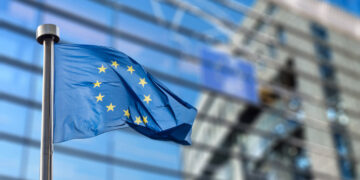
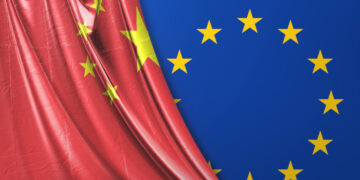

















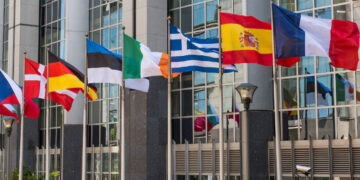






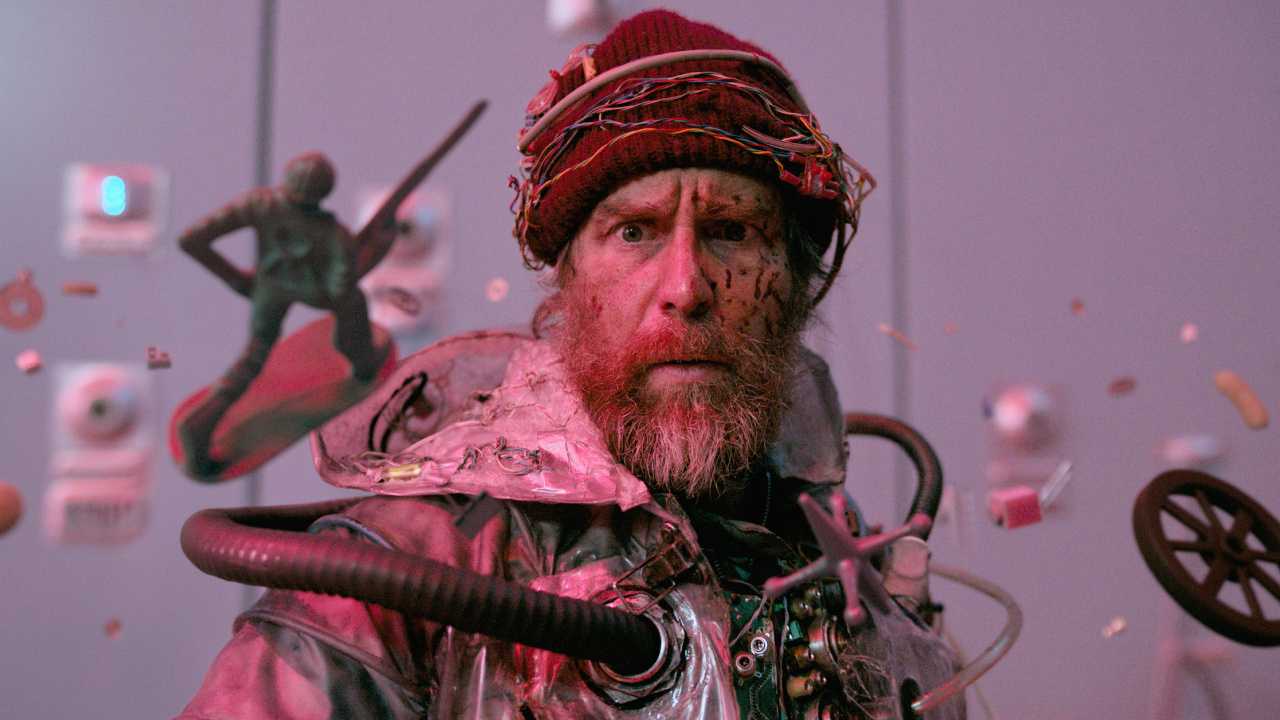
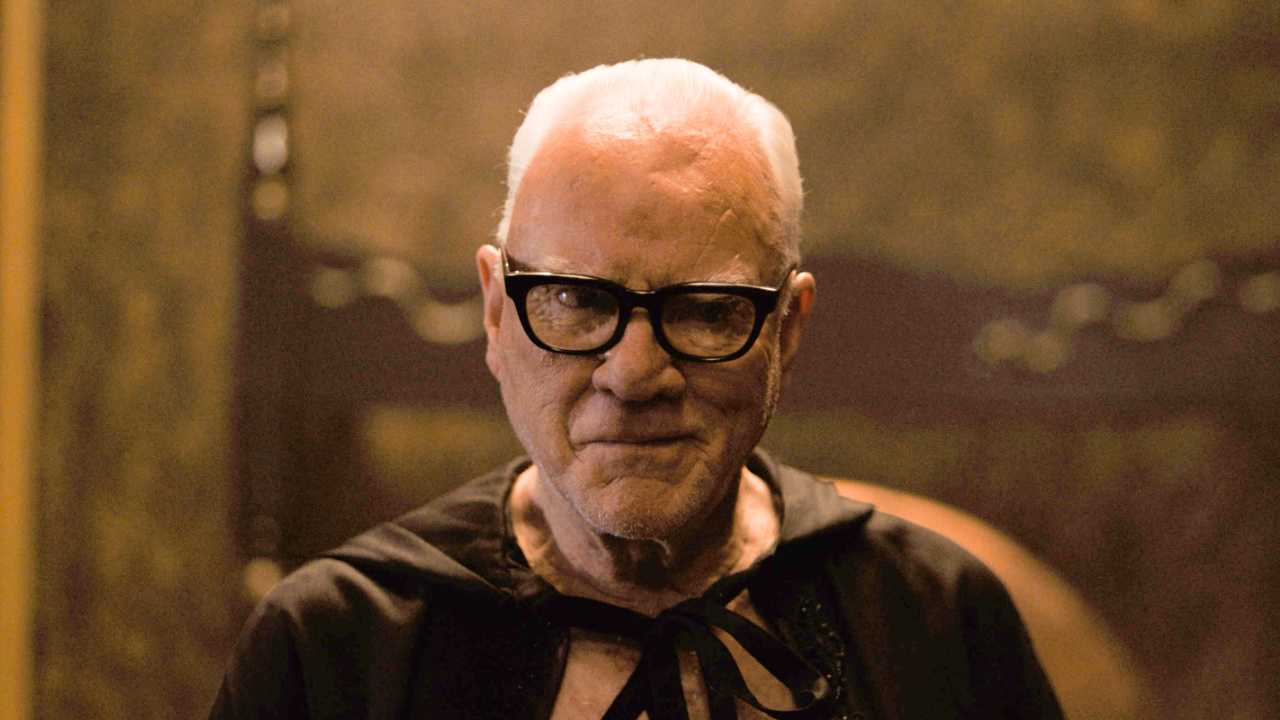




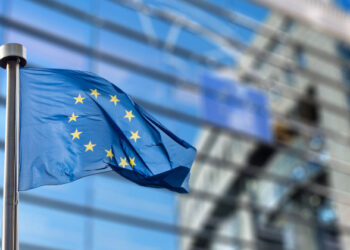
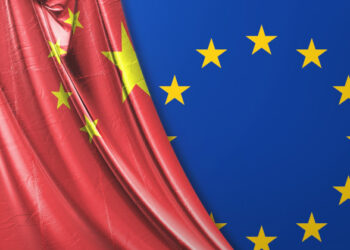




Discussion about this post